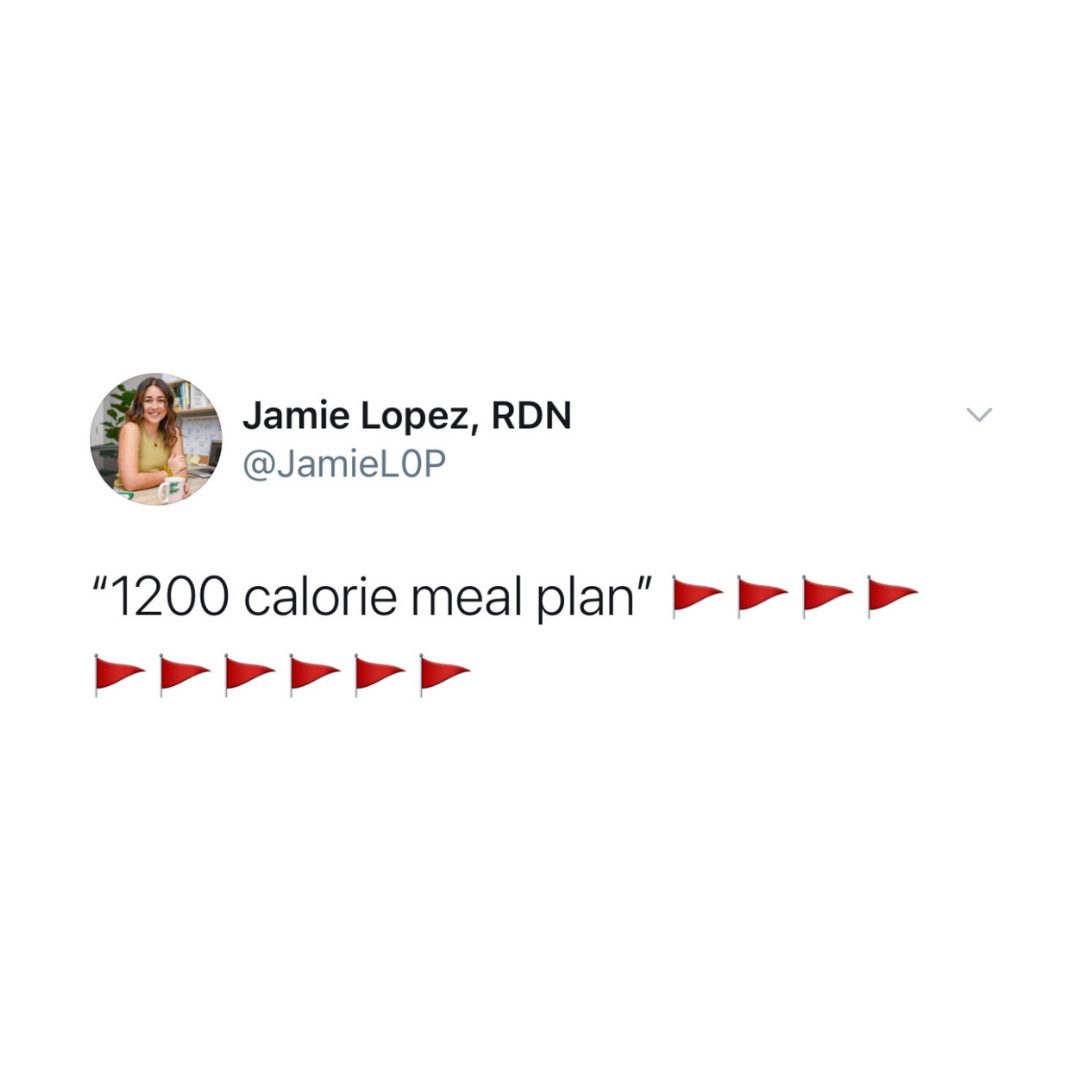10 Diet Culture Red Flags to Avoid
Diet Culture is such a deal breaker
If you’ve been active on socials recently, you’ve probably seen the red flag trend. For those of you that haven’t, someone would post something in quotes with a bunch of red flags next to it indicating something that is a deal-breaker for them.
This week I decided to have a little fun and talk about the 10 diet culture red flags I always look out for:
1. Claims that sound too good to be true
“Lose weight without diet or exercise” or “lose X pounds in X weeks” is one of the biggest diet culture red flags. When you hear a sensational diet or weight loss claim, do a gut check. If the claim sounds too good to be true, it probably is.
2. Offer easy solutions for complex health-related problems
Every time I see something like “aloe can help cure IBS, Crohn’s, and colitis” I get a good laugh. Rarely can a single food or cream be a cure-all. If healthcare was that simple, there would be no need for doctors.
3. Suggestions to follow external food rules
Diets that encourage restricting certain foods or food groups, eating at specific times of day, or eliminating sugar teach you to rely on external factors to dictate what you eat. Instead, practice listening to your body and internal wisdom of when to eat, how much to eat, and what foods will satisfy your need for nourishment.
4. Placing morality on food and body size
Diets that label food as “good” or “bad” or demonize carbs or “processed” foods or suggest body fat is a sign of lazy or unmotivated people so all you need is self-control or willpower. When you don’t meet these thin expectations or crave food deemed “bad” or “unhealthy” it creates a sense of shame, failure and helplessness. Be mindful of your judgmental food and body thoughts and reframe it into neutral or positive alternatives. Unpack internalized fat bias and reject negative fat stereotypes.
5. Detox or cleanse products
Products such as a juice cleanse detox teas or all raw vegetable diets that claim to detox the body from toxins, poisons or pathogens are misleading. The body has a natural detox system and does not need special diet products to function. Eating a balanced diet, adding a variety of fruits and vegetables, and drinking plenty of water is simply what’s needed to support your natural detox system.
6. The use of exercise as a form of punishment
Personal trainers or gym ads that encourage movement as a form of burning carbs, or as an excuse to eat what you want are diet red flags. Weight loss is a poor long-term motivating factor. Health benefits from physical activity stem from regular activity, finding movement or exercise you enjoy or personal goals like gaining strength or heart health are more sustainable.
7. Pathologizing body size
When fad diets use weight as the primary goal or use before and after photos they pathologize body size. It creates an illusion people with large bodies are abnormal or unhealthy. It reinforces a false narrative that thinness is healthy, upholds unrealistic body standards, and ignores natural body diversity.
8. Vague, meaningless, or scientific-sounding terms
“Our all-natural, clinically tested, patented, chelated dietary supplement works best.” These words are often used as marketing tools to impress or confuse consumers.
9. Based on anecdotal evidence or celebrity endorsements
“I lost 50 pounds in 30 days using this product,” or “I rubbed this vitamin formula on my scar and it disappeared in days.” Reliable nutrition information is based on scientific evidence, not testimonials and anecdotes.
10. Based on a signal study of misrepresenting scientific studies
“Research conducted at our private health facility proves coffee enemas can cure cancer.” Media and companies often misrepresent scientific studies as clickbait or give a false sense that it's validated by science. Quality research is replicated over and over with similar results. The gold standard of research is randomized controlled trials (RCT) that control for bias and eliminate major errors that can lead to false conclusions.
✨Feel confident in your own skin and the food choices you’re making.✨
Get started for FREE by grabbing the Mindful Meal Planning Guide here.
Need extra support? Click here to schedule a free consultation call




